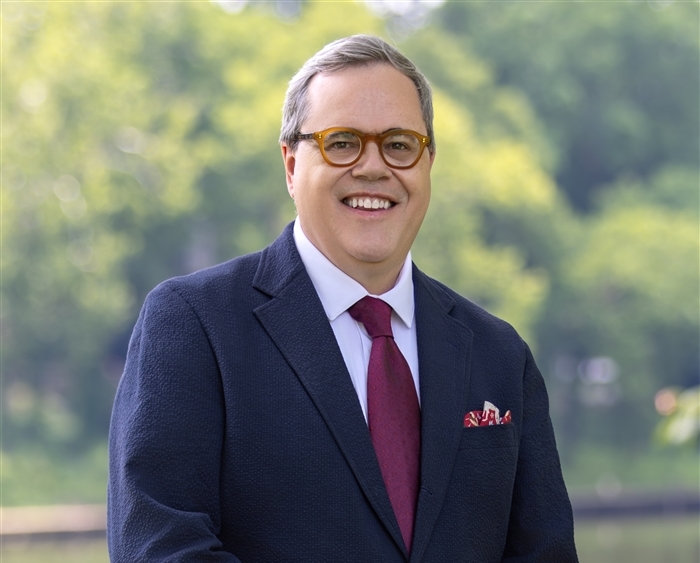Chicago Tribune publishes essay by President Sosulski on value of the humanities

The Chicago Tribune published an important guest commentary on the value of humanities by Lake Forest College President Michael J. Sosulski on September 10.
In his piece, “Now is not the time for universities to retreat from the humanities,” Sosulski calls attention to the University of Chicago’s recent decision to pause graduate admissions in nearly every humanities program. He argues that such cuts are misguided, especially in an era when artificial intelligence and political polarization make the wisdom, creativity, and civic virtues fostered by the humanities more essential than ever.
Highlighting Lake Forest College’s own commitment, Sosulski points to the newly established Krebs Center for the Humanities as a model of how liberal arts colleges can lead the way in preserving and advancing humanistic inquiry.
OPINION/COMMENTARY
Michael J. Sosulski: Now is not the time for universities to retreat from the humanities
By Michael J. Sosulski | Published September 10, 2025
In his seminal 1950 essay “The Idea of a College,” Robert Maynard Hutchins, then president of the University of Chicago, made the case for the humanizing influence of a liberal arts education in the face of midcentury nuclear terror. “Now at last we shall have to think,” he wrote. “Now we must apply ourselves to the task of creating a community in this country and then throughout the world. The education that will help us toward these ends is liberal education, the education of free men.”
By liberal education, Hutchins was not talking about politics, but rather an education rooted in a broad range of subjects, from the sciences to the arts and humanities, with the latter playing an indispensable role. That is why the University of Chicago’s recent decision to pause graduate admissions in nearly every humanities program for 2026-27 is deeply disappointing. Speaking not only from my perspective as a committed lifelong educator — but also as a University of Chicago alumnus whose life and career have been shaped by the university’s storied tradition of humanistic inquiry—I believe this is not the time to retreat from the humanities. The digital and technological urgency of our own era demands the exact opposite.
As classics professor Eric Adler explained in his recent analysis in The Chronicle of Higher Education, “They’re Killing the Humanities on Purpose,” humanities disciplines are not being targeted at places such as the University of Chicago because they are so prohibitively expensive. In fact, they are among the least costly for a university to support. Nor are they being targeted because humanities graduates lack preparation for life after college. On the contrary, decades of research from the American Association of Colleges and Universities show that liberal arts graduates, humanities majors among them, excel in exactly the skills employers most value: excellent communication, ethical reasoning, the ability to work well in teams and across difference, critical problem-solving and much more. Adler suggests that the long-standing bias toward scientific fields makes little sense if one is truly seeking to economize. Rather than pausing humanities admissions, universities would be better off deciding which expensive science, technology, engineering and mathematics field to deemphasize as that is where the real cost centers lie.
Given the historical moment in which we find ourselves — when artificial intelligence is reshaping every facet of our lives — abandoning investment in the humanities seems like a grave mistake. While artificial intelligence dramatically amplifies our access to information and our ability to process it rapidly, it cannot replicate the wisdom, creativity and ethical reasoning nurtured by humanistic study. The capacity to analyze historical context, grapple with complex meanings and interrogate the very society these technologies are meant to serve has never been more vital. In a technological landscape racing ahead, institutions should be championing, not trimming, the rigorous education that enables thoughtful stewardship of these changes.
In today’s political terrain, we simply cannot afford to abandon humanities education. Individuals trained in the humanities know how to appreciate nuance and contradiction, discern factual arguments from fiction, prize empathy, and trace the roots of contemporary challenges to historical debates and dilemmas. The humanities foster not just academic achievement, but also the critical civic virtues that encourage productive dialogue, understanding and principled disagreement. America cannot afford to lose these skills at a moment when its democracy needs them most.
While some research universities may be retreating from the humanities, liberal arts colleges across the country are moving in the opposite direction. At Lake Forest College, where I serve as president, we have a newly established Krebs Center for the Humanities. This Italianate home is where the exploration of the past meets the horizons of the future through innovative programming, interdisciplinary dialogue and a space for students to pursue humanistic inquiry. The Krebs Center not only anchors traditional scholarship but also tackles critical questions head-on about the future of humanity in the age of automation and AI.
As major research universities narrow their vision, the nation’s liberal arts colleges may well become the last true bastions of humanistic learning. Institutions such as Lake Forest College will lead the way—deepening support, fostering creativity and preparing a new generation to absorb complexity and challenge easy answers to life’s big questions, well beyond campus walls.
Humanities indeed matter, and they will continue to matter as long as humans struggle to be truly free. As some institutions sadly pause, let us prove—boldly and unapologetically—that the study of what it means to be human is indispensable.
Michael J. Sosulski, PhD, is the president of Lake Forest College.

